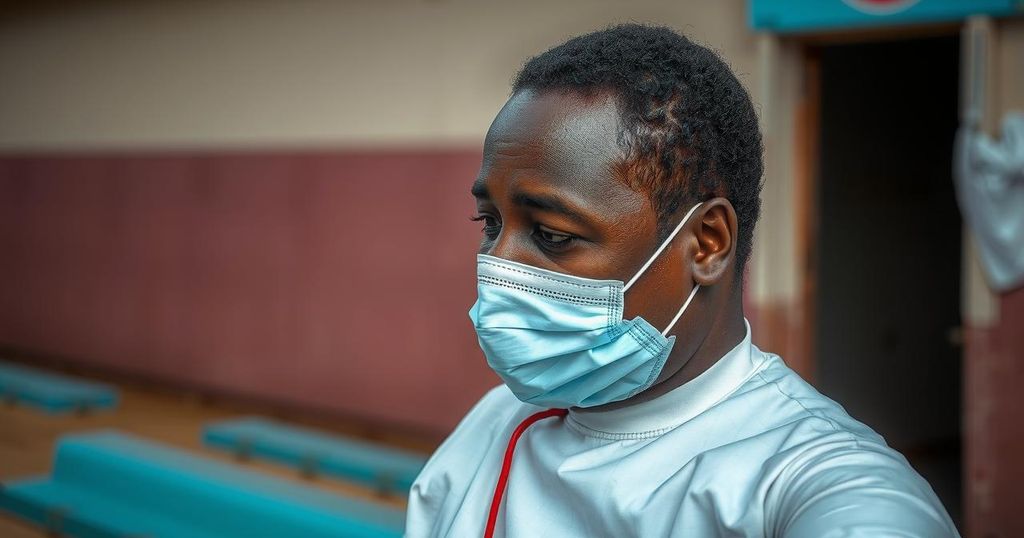Lifestyle
ABC NEWS, AFRICA, AFRICA CDC, AFRICA CENTRES FOR DISEASE CONTROL AND PREVENTION, AFRICAN UNION, ANGOLA, CDC, CONGO, DEMOCRATIC REPUBLIC OF CONGO, DISEASE, DISEASE OUTBREAK, DRC, FOOD POISONING, FRANCISCO, GLOBAL HEALTH AGENCY, HEALTH, HOSPITALIZATION, KWANGO, NORTH AMERICA, PETER CHIN - HONG, PUBLIC HEALTH, REUTERS, SAN FRANCISCO, UNITED STATES, UNIVERSITY OF CALIFORNIA, UNIVERSITY OF CALIFORNIA, SAN, WHO, WORLD HEALTH ORGANIZATION
Sofia Rodriguez
0 Comments
Investigation Underway for Deadly Unidentified Illness in Congo
A mysterious illness in the Democratic Republic of Congo has infected nearly 400 people, resulting in 79 deaths since late October. Health authorities are investigating the disease’s origins and transmission, with early symptoms resembling flu and notable cases primarily among young children. The urgency of responding to this outbreak underscores the significance of effective public health surveillance and international cooperation.
Health officials are actively investigating a severe and unidentified disease that has emerged in the Democratic Republic of Congo (DRC). Since the initial report of cases in late October, there has been a troubling rise in infections, with nearly 400 cases and 79 deaths documented by the Africa Centres for Disease Control and Prevention (Africa CDC). The World Health Organization (WHO) is collaborating with local authorities to understand the situation and has dispatched a team to conduct laboratory investigations to identify the cause of this outbreak.
The mysterious illness first manifested in the Kwango province, near the Angola border, with flu-like symptoms such as fever, headaches, coughs, and breathing difficulties reported by patients. As of December 5, the disease had affected 376 individuals, with a reported mortality rate of 21%. Infants and young children under five years old account for more than half of all cases, as well as the majority of fatalities. Public health officials are keenly aware of these troubling statistics but have emphasized the need for further clarity regarding the illness’s transmission and impact, particularly in vulnerable populations.
Experts have expressed concerns regarding anemia as a reported symptom of the illness, questioning whether it results from the disease or pre-existing conditions among infected individuals. Questions remain about the nature of infections; health professionals have noted the necessity of understanding whether there are asymptomatic cases, the rate at which the disease progresses, and if it resembles known respiratory infections. Laboratory results from preliminary patient samples are anticipated shortly, which may provide further insights into the outbreak.
The Africa CDC has underscored systemic weaknesses in disease detection within the region and noted delays in reporting the outbreak to the national authorities. These delays hinder timely responses and highlight the challenges posed by remote areas in health surveillance. Health experts indicate that external support for the DRC is vital, particularly as the ongoing mpox outbreak and regional conflicts complicate health communications. They stress the importance of global vigilance in infectious disease outbreaks, given the potential for rapid international transmission.
The article discusses an outbreak of an unidentified disease in the Democratic Republic of Congo (DRC), which has led to a significant number of infections and fatalities. Initially reported in late October, the illness has raised concerns among health officials due to its high incidence and unclear origins. The Africa CDC and WHO are involved in investigating the outbreak, highlighting the imperative need for effective disease surveillance in remote regions. The DRC has been struggling with health crises, including other infectious diseases, which complicate the public health response.
In summary, the outbreak of an unidentified disease in the DRC represents a significant public health challenge, characterized by a high mortality rate and unclear transmission dynamics. Ongoing investigations by health organizations are crucial in identifying the source and nature of the illness, with an urgent need for strengthened disease detection systems in the region. Global cooperation and vigilance are necessary to mitigate the risk of spreading infections beyond national borders.
Original Source: www.goodmorningamerica.com




Post Comment